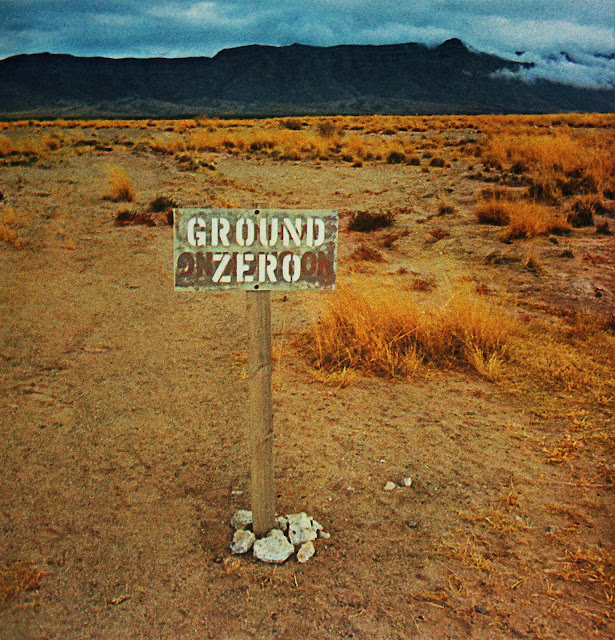Ecology and
Revolution
By Herbert Marcuse
(from Liberation 16 (September 1972):10-12)
Coming from the
United States, I am a little uneasy discussing the ecological movement, which
has already by and large been co-opted [there]. Among militant groups in the
United States, and particularly among young people, the primary commitment is
to fight, with all the means (severely limited means) at their disposal,
against the war crimes being committed against the Vietnamese people. The
student movement – which had been proclaimed to be dead or dying, cynical and
apathetic – is being reborn all over the country. This is not an organized opposition
at all, but rather a spontaneous movement which organizes itself as best it
can, provisionally, on the local level. But the revolt against the war in
Indochina is the only oppositional movement the establishment is unable to
co-opt because neocolonial war is an integral part of that global
counterrevolution which is the most advanced form of monopoly capitalism.
So, why be concerned
about ecology? Because the violation of the earth is a vital aspect of the
counterrevolution. The genocidal war against people is also “ecocide” insofar
as it attacks the sources and resources of life itself. It is no longer enough
to do away with people living now; life must also be denied to those who aren’t
even born yet by burning and poisoning the earth, defoliating the forests,
blowing up the dikes. This bloody insanity will not alter the ultimate course
of the war, but it is a very clear expression of where contemporary capitalism
is at: the cruel waste of productive resources in the imperialist homeland goes
hand in hand with the cruel waste of destructive forces and consumption of
commodities of death manufactured by the war industry.
In a very specific
sense, the genocide and ecocide in Indochina are the capitalist response to the
attempt at revolutionary ecological liberation: the bombs are meant to prevent
the people of North Vietnam from undertaking the economic and social
rehabilitation of the land. But in a broader sense, monopoly capitalism is
waging a war against nature – human nature as well as external nature. For the
demands of ever more intense exploitation come into conflict with nature
itself, since nature is the source and locus of the life-instincts which
struggle against the instincts of aggression and destruction. And the demands
of exploitation progressively reduce and exhaust resources: the more capitalist
productivity increases, the more destructive it becomes. This is one sign of
the internal contradictions of capitalism.
One of the essential
functions of civilization has been to change the nature of man and his natural
surroundings in order to “civilize” him – that is, to make him the
subject-object of the market society, subjugating the pleasure principle to the
reality principle and transforming man into a tool of ever more alienated
labor. This brutal and painful transformation has crept up on external nature
very gradually. Certainly, nature has always been an aspect (for a long time
the only one) of labor. But it was also a dimension beyond labor, a symbol of beauty, of tranquility,
of a non-repressive order. Thanks to these values, nature was the very negation
of the market society, with its values of profit and utility.
However, the natural
world is a historical, a social world. Nature may be the negation of aggressive
and violent society, but its pacification is the work of man (and woman), the
fruit of his/her productivity. But the structures of capitalist productivity is
inherently expansionist: more and more, it reduces the last remaining natural
space outside the world of labor and of organized and manipulated leisure.
The process by which
nature is subjected to the violence of exploitation and pollution is first of
all an economic one (an aspect of the mode of production), but it is a
political process as well. The power of capital is extended over the space for
release and escape represented by nature. This is the totalitarian tendency of
monopoly capitalism: in nature, the individual must find only a repetition of
his own society; a dangerous dimension of escape and contestation must be
closed off.
At the present stage
of development, the absolute contradiction between social wealth and its
destructive use is beginning to penetrate people’s consciousnesses, even in the
manipulated and indoctrinated conscious and unconscious levels of their minds.
There is a feeling, a recognition, that it is no longer necessary to exist as
an instrument of alienated work and leisure. There is a feeling and a
recognition that well-being no longer depends on a perpetual increase in
production. The revolt of youth (students, workers, women) undertaken in the
name of the values of freedom and happiness, is an attack on all the values
which govern the capitalist system. And this revolt is oriented toward the
pursuit of a radically different natural and technical environment; this
perspective has become the basis for subversive experiments such as the
attempts by American “communes” to establish non-alienated relations between
the sexes, between generations, between man and nature – attempts to sustain
the consciousness of refusal and of renovation.
In this highly
political sense, the ecological movement is attacking the “living space” of
capitalism, the expansion of the realm of profit, of waste production. However,
the fight against pollution is easily co-opted. Today, there is hardly an ad
which doesn’t exhort you to “save the environment,” to put an end to pollution
and poisoning. Numerous commissions are created to control the guilty parties.
To be sure, the ecological movement may serve very well to spruce up the
environment, to make it pleasanter, less ugly, healthier and hence, more
tolerable. Obviously, this is a sort of co-optation, but it also [contains] a
progressive element because, in the course of this co-optation, a certain
number of needs and aspirations are beginning to be expressed within the very
heart of capitalism and a change is taking place in people’s behavior,
experience, and attitudes towards their work. Economic and technical demands
are transcended in a movement of revolt which challenges the very mode of
production and model of consumption.
Increasingly, the
ecological struggle comes into conflict with the laws which govern the
capitalist system: the law of increased accumulation of capital, of the
creation of sufficient surplus value, of profit, of the necessity of
perpetuating alienated labor and exploitation. Michel Bosquet put it very well:
the ecological logic is purely and simply the negation of capitalist logic; the
earth can’t be saved within the framework of capitalism, the Third World can’t
be developed according to the model of capitalism.
In the last
analysis, the struggle for an expansion of the world of beauty, nonviolence and
serenity is a political struggle. The emphasis on these values, on the
restoration of the earth as a human environment, is not just a romantic,
aesthetic, poetic idea which is a matter of concern only to the privileged;
today, it is a question of survival. People must learn for themselves that it
is essential to change the model of production and consumption, to abandon the
industry of war, waste and gadgets, replacing it with the production of those
goods and services which are necessary to a life of reduced labor, of creative
labor, of enjoyment.
As always, the goal
is well-being, but a well-being defined not by ever-increasing consumption at
the price of ever-intensified labor, but by the achievement of a life liberated
from the fear, wage slavery, violence, stench and infernal noise of our
capitalist industrial world. The issue is not to beautify the ugliness, to
conceal the poverty, to deodorize the stench, to deck the prisons, banks and
factories with flowers; the issue is not the purification of the existing
society but its replacement.
Pollution and
poisoning are mental as well as physical phenomena, subjective as well as
objective phenomena. The struggle for an environment ensuring a happier life
could reinforce, in individuals themselves, the instinctual roots of their own
liberation. When people are no longer capable of distinguishing between beauty
and ugliness, between serenity and cacophony, they no longer understand the
essential quality of freedom, of happiness. Insofar as it has become the
territory of capital rather than of man, nature serves to strengthen human
servitude. These conditions are rooted in the basic institutions of the
established system, for which nature is primarily an object of exploitation for
profit.
This is the
insurmountable internal limitation of any capitalist ecology. Authentic ecology
flows into a militant struggle for a socialist politics which must attack the
system at its roots, both in the process of production and in the mutilated
consciousness of individuals.













No comments:
Post a Comment